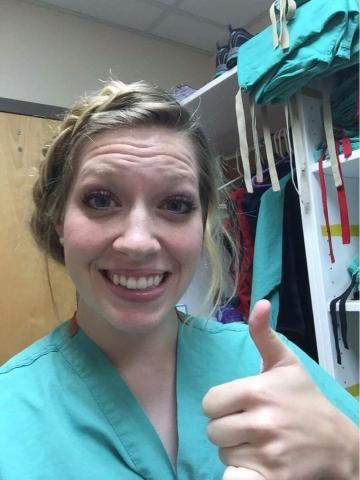


You’ve heard this question before: “What do you want to be when you grow up?” Maybe as a kid you thought about being a fire fighter or a teacher. How about a world-famous chef or basketball player? Did you ever consider becoming a nurse?
Recently, Nightingale College of Utah, reached out to Sentinel News regarding the need to discuss the ever-growing issue with the shortage of nurses. To participate with helping to alleviate this problem, Nightingale College has been working on an online version of the RN to BSN program which is currently open for students. http://nightingale.edu/bsn/
“Nursing is one of the most difficult of arts. Compassion may provide the motive, but knowledge is our only working power,” said Mary Adelaide in 1925. She was the world’s first professor of nursing.
Today, the largest professional group in the healthcare system is formed by nurses. Healing includes more than just routine tests, like taking someone’s blood pressure. Nurses meet all the human needs that a machine could never deal with. The field of nursing is more about fostering, nurturing, and giving emotional support for the suffering in need.
Therefore, nurses play a critical role in a patient’s recovery. Yet, there has been a nursing shortage for too long in the United States. This, in turn, makes the future of healthcare uncertain. Because the gap is increasing each day, it begins to create a great concern.
As a junior in high school, Karina Johnson, is leaning towards a nursing career. She says, “I want to be a nurse because ever since I was little I’ve liked being at the hospital—I don’t know why. I like to be around people and help them.” Currently, Johnson is taking Medical Anatomy and Physiology. From her class, she says, “Learning about the human body is pretty amazing. It does so many things and it’s interesting.
“At the same time, there is also a shortage of teachers. Those people who would be able to teach at collegiate and university levels are not leaving hospitals or administration positions to teach. This may be due in part to academia’s lower paying conditions that also come with more rules and regulations.
This, overall, becomes a contributing factor in the nursing shortage and represents a difficulty for both students, schools, hospitals, and healthcare facilities.
Rachel Dittmore, who is presently a student of nursing at a 4-year university in Utah, tells us that, “Nursing school is somewhat tedious, in the sense of there being SO much to do with so little time. I honestly don’t feel like we’re given enough time to actually retain the information we’re taught.”
Dittmore feels as though there can be some improvements made within the educational spectrum of nursing. “If I could change anything about the nursing program, it might be to extend the length of the courses (maybe a 3-year program instead of 2) so you could go more in depth on fewer medical concepts/medications.”
Even for students who are prepared and who put in the long hours and effort—there is still a shortage of both clinical-training slots and teachers.
The work of being a nurse can be difficult, demanding and sometimes even dangerous. Therefore, a percentage of nurses leave their profession at some point in their careers.
Having chosen the field of nursing and being very happy with her decision, Melinda Wilson, says that, “Nursing is one of the most fulfilling professions you will ever find. Each day provides the opportunity for growth physically, mentally, and emotionally.”
Wilson works in the field of women’s health as a labor and delivery nurse. She says, “It can be trying at times, especially since there are two lives counting on me, but at the end of the day when I see a new mother snuggling and loving her precious little baby—I know there is nothing in the world that I would rather do.”
Wilson’s schooling wasn’t easy. Her required schooling was difficult and time consuming. Becoming a nurse meant Wilson would be sacrificing much of her time away from family. However, she tells us, “I also knew it would be worth the sacrifice. You know that you get to impact someone’s life each time you work, and in return your life is changed as well.”
There are three important reasons why we NEED nurses and will continue to need them:
Aging and Retiring
New Population Health Needs
Nurse Staffing
To find out more about having a career in nursing, consider looking into Nightingale College’s programs at www.nightingale.edu.
There, you may find the article entitled: “The Complete Guide: What is BSN, How to Get the Degree & What it Can Do for Your Nursing Career” by Emily Crawford.